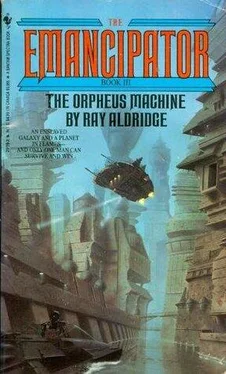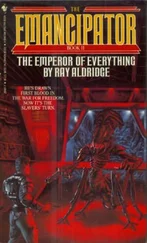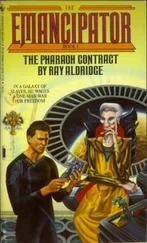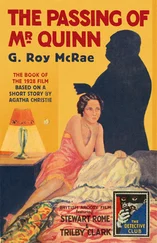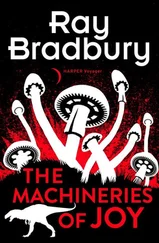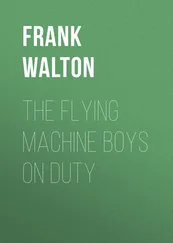The stench was too intense to be interpreted by the parameters of ordinary stenches. Ruiz gagged; then the impulse passed and he saw the universe slip sideways, twisted by the mindfire. There was a moment of terrible strain. Then reality tore into ragged scraps and blew away… to reveal the universe’s new face.
The dull red walls of the tunnels now shimmered in a thousand subtle shifting luminescences, as beautiful as a fire opal. The darkness of the side tunnels seemed velvety, full of possibilities both good and ill — but all intriguing. He looked down at his armored hands and was amazed by the cold beauty of the machined metal. The ready-lights of his weapon twinkled like little gems. A lovely blue light hazed the barrel of the ruptor. The Gench alone seemed little altered, its squat ugliness a sour presence in the midst of the sudden beauty that filled the tunnel. Even the trash exhibited a compellingly rich texture, a tangle of meaningful shape and color.
“Are you able to go on?” said the Gench, and Ruiz woke to a sense of passing time. Urgency seized him.
“Yes,” said Ruiz. He keyed the channel to Nisa’s clone. “Are you there?” he asked.
“I’m here,” she answered instantly. Her voice, always sweet, now seemed the most unendurably beautiful music Ruiz had ever heard. He felt his eyes filling.
He shook his head, shut his eyes, and forced his mind to cold purposefulness. “Listen. I’ve opened my armor; now I must depend on your eyes to show me what is true. If you observe me in erratic behavior, tell me what the camera shows you, since I’ll probably be seeing something that isn’t there — maybe my fear made visible, maybe the things the Gench believe about themselves and their servitors. Maybe events that have happened in this place — some of them long, long ago. Do you understand?”
“Yes.”
“Good. Record everything, but broadcast nothing until I tell you to do so.”
There was a pause, and Ruiz imagined her consulting with the Deepheart technicians to be sure she could do as he asked. “All right,” she said.
Ruiz resisted the urge to take a deep breath, and moved off, following the Gench.
It led him away from the inhabited tunnels, down through rough twisting passages rich with antiquity and strangeness. The red bioluminescence was very low in these unused tunnels, as if perhaps the organisms that gave the light fed on the stink of the habitations and were here starved for sustenance.
The Gench seemed to move less surely in these places, as though the pheromonic network were less intact here, and Ruiz occasionally drew a breath of purer air, so that his head cleared a bit.
They came to a place where the roof lifted away, and the tunnel widened into an echoing cavern. Crumbling ledges rose to either side; Ruiz soon identified them as the risers of an amphitheater. The ledges were oriented toward the far side of the dark chamber, and Ruiz strained his eyes, trying to make out a huge ominous shape that loomed there.
Abruptly he became aware of activity to each side, of rustles and soft footfalls and the sighing sound of many people breathing. He glanced up into the risers and saw dim silhouettes moving there, hundreds of them. He stopped and crouched, weapon ready. “Who are they?” he asked in a quivering voice.
The Gench stopped and its eyespots floated around to focus on Ruiz. “No one is here, Ruiz Aw.”
“I see no one either,” said Nisa’s clone.
Ruiz slowly straightened up… but the illusion persisted that he shared the cavern with a great crowd.
“What is this place?” he asked the Gench.
“This is the place where the Orpheus Machine was born,” it answered.
Ruiz moved forward a step. At the far end of the cavern an unhealthy green light gathered into dripping clots. Gradually it illuminated a massive object.
The Orpheus Machine was as tall as four men, and ten meters wide. Its facade was in the semblance of a great face, but the features moved with an independent life, a pulsing crawling animation. At first Ruiz couldn’t see why that should be so; he could only see the expression on the face, a sort of sly scheming lunacy.
He moved a little closer, and now he could see the source of the movement. The Machine’s facade was a mixture of limbs and torsos, all knit together into those dreadful features. Here and there under that hideous crust of flesh, a metal substrate glinted through.
What Ruiz had at first taken for wrinkles were the divisions between the body parts. There was a certain symmetry and purposefulness to the design; it had none of the casual stuck-together quality that marked the mutilations the Gench servitors wore. As he approached, he began to see the logic of the design. The cheekbones were a knotty mass of arms, the muscles clenching nervously. The forehead was a horizontal striation of long smooth feminine legs. The eyes were a pointillist design made up of thousands of real eyes — pale blue eyes for the sclera and black for the pupils — and each blinking eyeball glowed with a disorienting awareness. The lipless mouth gaped open in a loose grin, and Ruiz saw that its teeth were the blond shaggy heads of children, lolling in some ugly ecstasy.
Here and there on the face were patches of Gencha skin, bristling with sensor tufts.
Ruiz felt terribly ill. To see the Orpheus Machine was to want to destroy it, and he wondered how it had survived for so many centuries. And then he wondered who had made it.
He must have spoken aloud, because the Gench answered in its whispery voice. “A religious impulse — an aspect of human behavior I don’t pretend to understand. When we first divined that Sook would one day become a human world and took humans from the surface to mold into servitors, they fell prey to many madnesses. This was one — an attempt to synthesize a cyborg containing both human and Gencha elements. To make a god. They succeeded, to some extent. We theorize it was because they didn’t understand the impossibility of such a thing…. Here they made the Machine, and here they first worshiped it.”
Ruiz’s hands tightened on his ruptor. He told himself over and over that he was looking at an illusion, a memory of things long dead.
The Machine smiled even more widely and said, without moving its lips, “Am I?” The voice would have been deep and resonant had it not been so faint; Ruiz could feel it in his bones.
The tiny sound woke such a depth of loathing in Ruiz that his hands shook and he half-raised the ruptor.
“No!” warned the Gench. “Resist the illusions. The Machine’s ghosts work to confuse you. If you lose control, you will alert the soldiers your enemy has placed in ambush at the entry to the real Machine’s sanctum. Or your weapon may collapse the ceiling. The servitors refuse to maintain these passages — the ghosts afflict them also.”
“Yes,” said Ruiz, and lowered the ruptor. He moved toward the face, and with each step some hideous new monstrousness revealed itself. When he was very close, the face opened in a silent gloating scream, and the small heads that lined the jaws turned to look at him. They glared at him with mindless ferocity, their little sharp teeth snapping in an irregular rhythm.
“Too much,” said Ruiz faintly. He purged the atmosphere of his armor with pure oxygen and closed his vents. He took deep breaths, trying to clear his lungs of the mindfire.
The Machine slowly faded, though not entirely, becoming a transparent, static image, dimly glowing, no longer threatening.
Ruiz thought about what the Gench had said and switched on his spotlight. He looked up at the roof of the cavern and discovered sagging slabs of meltstone and alloy, held up precariously by two central alloy pillars, which had corroded badly.
Читать дальше
